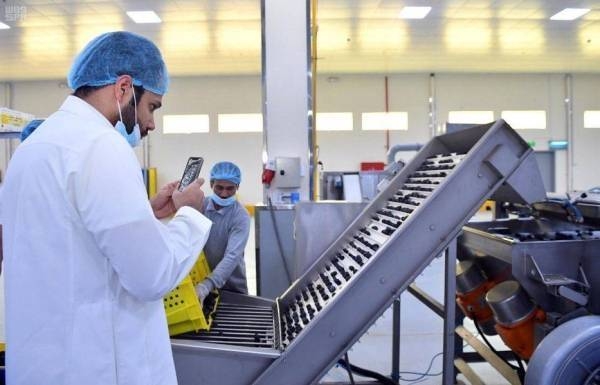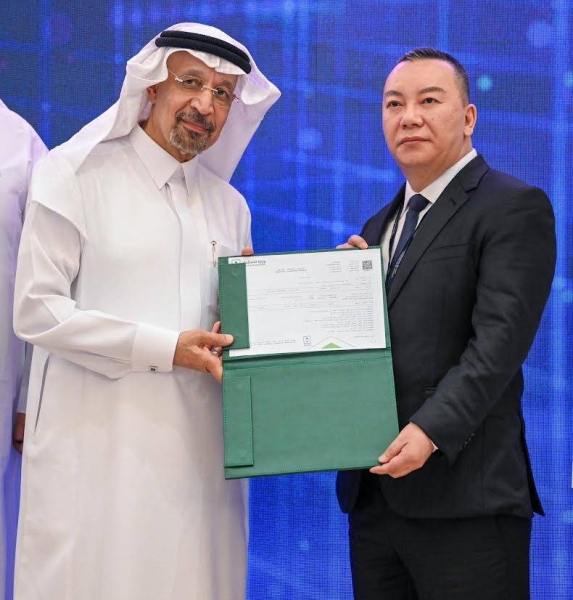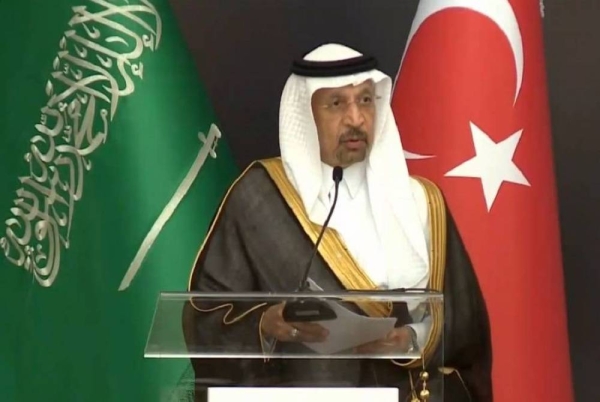
Saudi Arabia announced the establishment of the National Semiconductor Hub, which aims to attract over SR1 billion ($266.6 million) investment capital and funds in deep technology. This is part of efforts to establish 50 companies to design chips, which are witnessing high demand with the growth of artificial intelligence.
The National Semiconductor Hub was launched during the opening session of the Future of the Semiconductor Forum 2024 in Riyadh on Wednesday. The hub aims to promote the local design of electronic chips, and support 50 specialized companies in electronic chip and semiconductor design technologies.
Through the National Semiconductor Hub initiative, Saudi Arabia seeks to attract 25 international semiconductor experts with the aim of providing vision, advice and guidance. The Kingdom is working to be a gathering center for global markets, and its most important feature in the field of semiconductors is its strategic location, according to Rapid Silicon CEO Dr. Naveed Sherwani, who will head the new hub. It is noteworthy that the Alalat company, which was launched by Saudi Crown Prince and Prime Minister Mohammed bin Salman in February 2024 is the national basis for semiconductor manufacturing.
The two-day forum was organized by the King Abdulaziz City for Science and Technology (KACST), in cooperation with the King Abdullah University of Science and Technology (KAUST), under the title “Empowering Silicon Innovations.”
The opening session was attended by Minister of Communications and Information Technology and Chairman of the Board of Directors of KACST Eng. Abdullah Al-Swaha, Minister of Investment Eng. Khalid Al-Falih, President of the Saudi Authority for Data and Artificial Intelligence Dr. Abdullah Al-Ghamdi, and President of Princess Nourah Bint Abdul Rahman University Dr. Enas Al-Issa. The event was also attended by several officials, decision-makers, and an elite group of experts and specialists in the field of semiconductors.
The forum focuses on creating an integrated operating environment for companies that design semiconductors, and would provide high-quality jobs. During the forum, several ambitious initiatives were announced to bolster the Kingdom’s global standing in the field of semiconductors, boost the digital economy, develop local talent in this crucial field, and bring about transformative changes in the Middle East region.
Dr. Munir Eldesouki, President of KACST, declared the establishment of the National Capability Center for Semiconductors (NCCS) during the inaugural session. This center provides researchers and experts with access to advanced clean room laboratories spanning over 3,600 square meters at KACST and KAUST. It aims to create a research network for local and international universities, as well as the public and private sectors, to conduct specialized research in the electronic chip design industry. The ultimate goal is to fulfill national research, development, and innovation priorities and aspirations.
Dr. Eldesouki said the center will provide its resources to researchers from over 30 Saudi universities. This will help in developing expertise in electronic chip production by training 500 researchers and students in semiconductor technologies every year. He also announced a new joint master"s program in the field of semiconductors between KACST and Princess Nourah Bint Abdulrahman University and the University of California - Los Angeles (UCLA). The program aims to offer high-quality education to produce skilled professionals for the semiconductor industry and provide 35 percent intensive academic education and practical training in clean room laboratories in KACST that ends with them obtaining an academic degree. He said that the program contributes to achieving the goals of Saudi Vision 2030 by qualifying male and female researchers in future technology specializations.
Dr. Eldesouki also announced the opening of registration for the first batch of the semiconductor incubator program (Ignition), the first of its kind in the region. It is designed to attract ambitious entrepreneurs from all over the world, boost the development of local and international start-ups, achieve technical progress in the semiconductor industry, and contribute to national economic growth.
In his speech, Dr. Mohammed Al-Otaibi, general Supervisor of the Research and Development and Innovation Authority (RDIA), unveiled the salient features of the National Semiconductor Hub. He said that the hub plans to train and employ 5,000 engineers for integrated circuit design. Furthermore, the National Technology Development Program (NTDP) will provide more than SR150 million worth of support products to companies within this group.
Dr. Al-Otaibi emphasized that the Hub will play a vital role in boosting local industries, supporting research and innovation, and fostering a cutting-edge environment to strengthen the Kingdom’s position in the semiconductor industry. Prof. Tony Chan, president of KAUST, emphasized that the forum represents the strategic collaboration between KACST and KAUST. It also highlights the Kingdom’s keenness on this industry and its potential to create a promising future. Prof. Chan stressed the university’s commitment to developing world-class research and innovation capabilities in the field of semiconductors to pave the way for a bright future to achieve the ambitious Saudi Vision 2030.
During a talk at the conference, Prof. Shuji Nakamura, a Nobel Prize winner in Physics in 2014, discussed how his invention, “VCSEL Laser Technology,” is utilized in short-distance communication, car sensors, and facial recognition tools in smartphones. Over two days, the forum hosted eight scientific sessions. These sessions focused on various aspects of the semiconductor industry in the Kingdom. Participants discussed the general semiconductor landscape in the Kingdom to explore opportunities and shape the future, the pioneering semiconductors excellence in the Kingdom, strategic initiatives to enhance the semiconductor industry and localization opportunities, as well as the role of semiconductors in space exploration, and 6G communications research and beyond, and the development and manufacture of semiconductors in the Kingdom.
The participants also discussed the new advancements in photonics and quantum technologies, the role of artificial intelligence and data science in lighting technologies, and technical progress in semiconductor packaging and its applications. The attendees also deliberated the significance of integrated sensors and their uses in the Internet of Things, electronic chips in electric vehicles, and the Kingdom’s endeavors to localize and advance the electronic chip industry. This aims to establish a prominent position for the Kingdom in this field globally, considering the country" efforts to localize silicon innovations and its favorable position in terms of human resources, scientific capabilities, economy, and geography compared to other countries.
The forum featured an exhibition showcasing 20 local and international companies. The exhibition showcased the newest advancements in semiconductors and research posters related to this field












